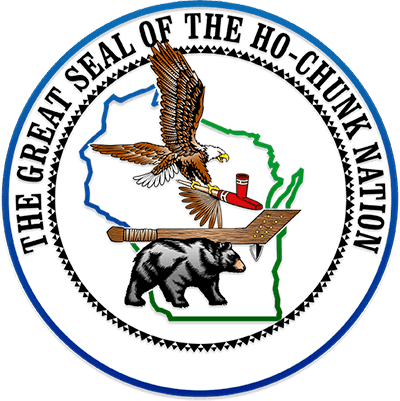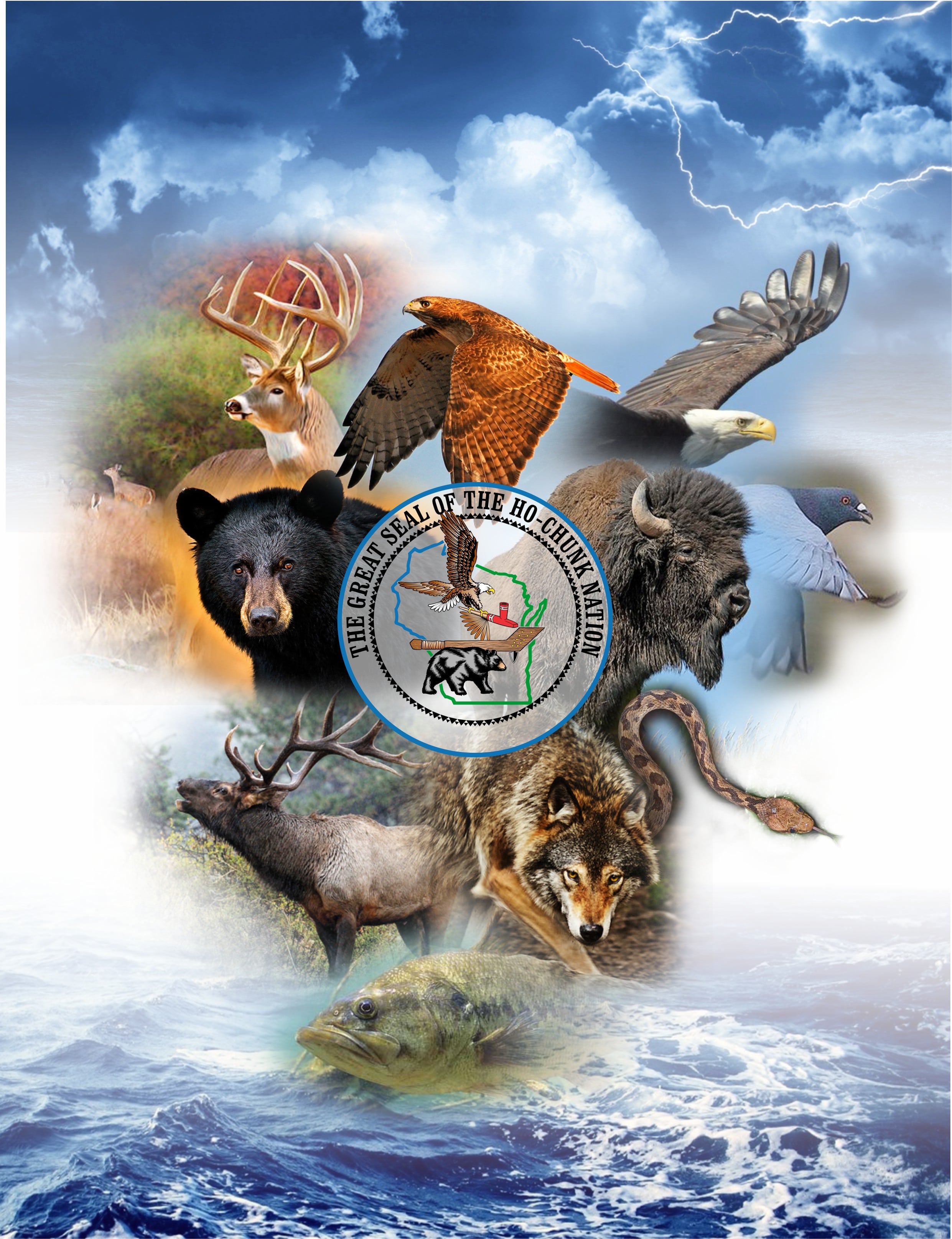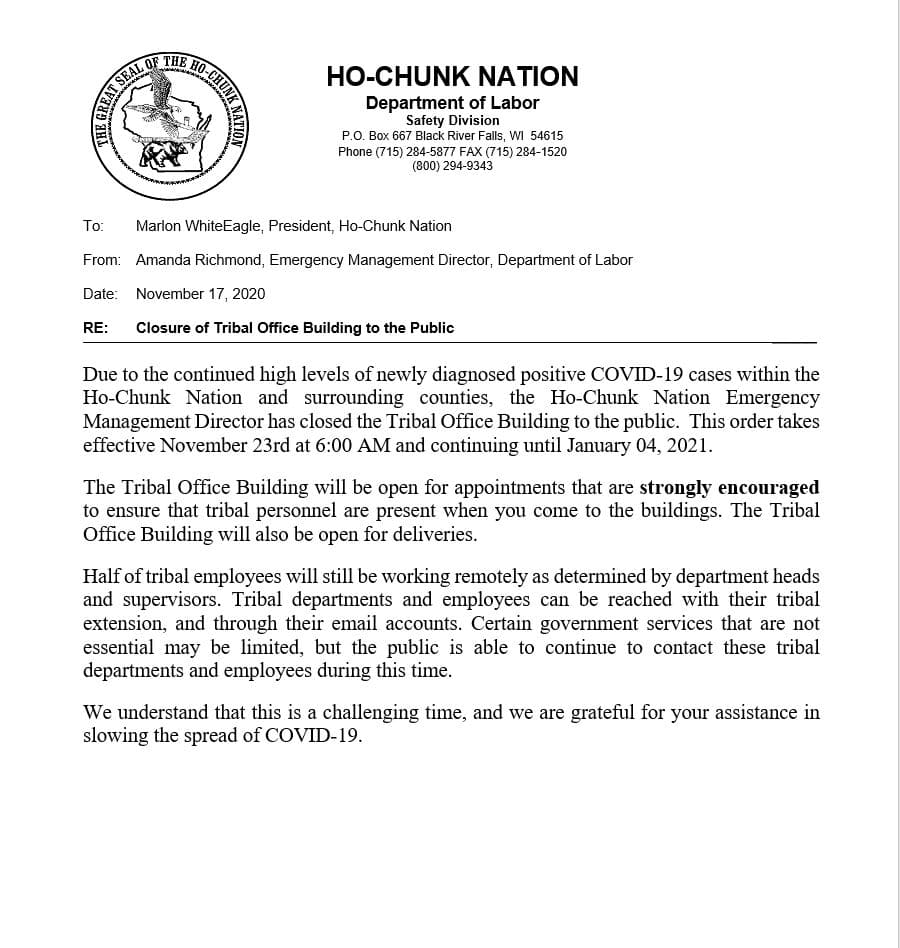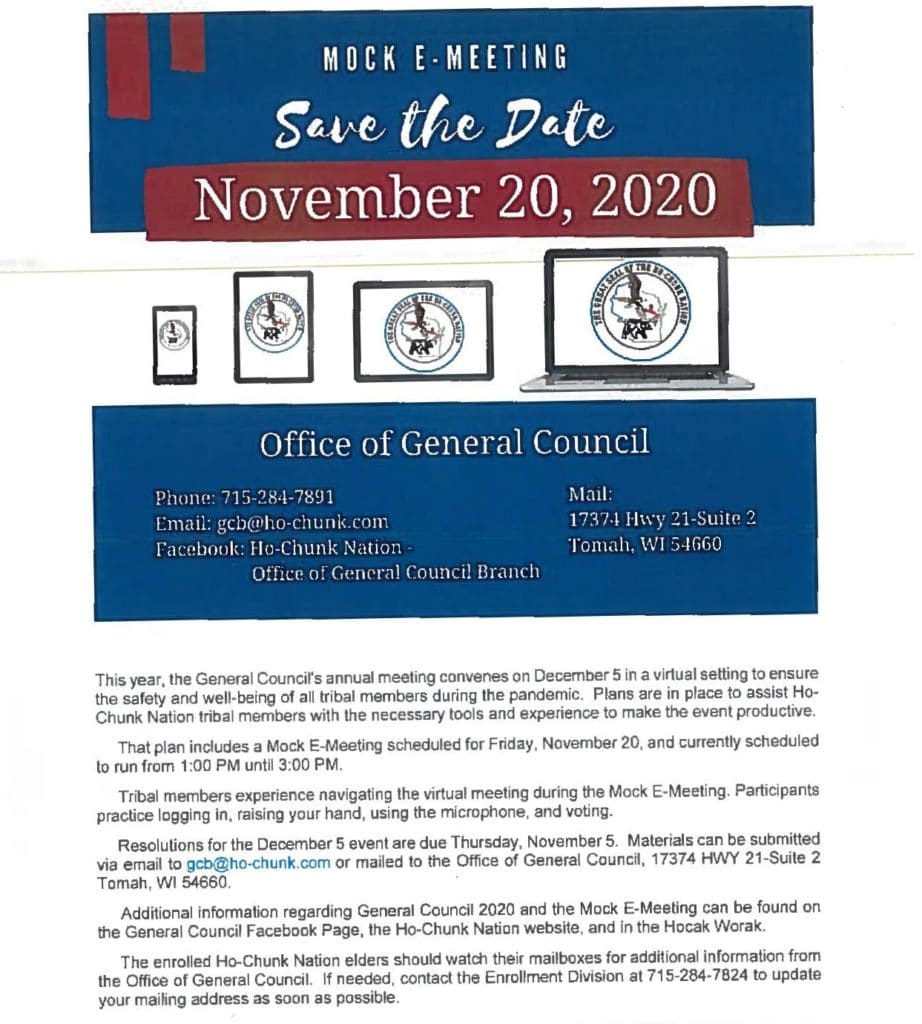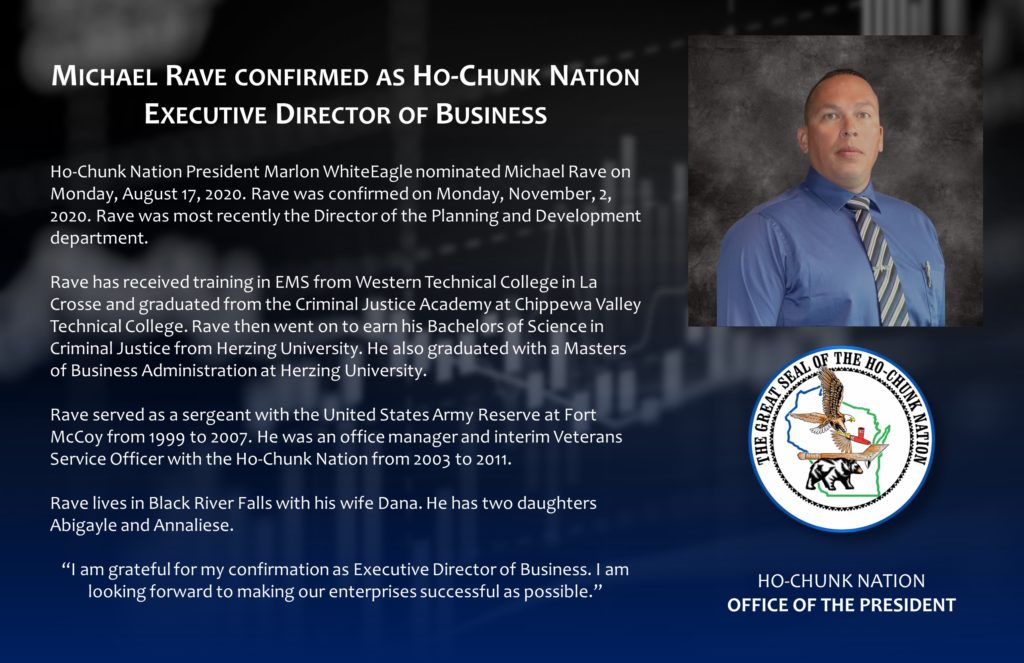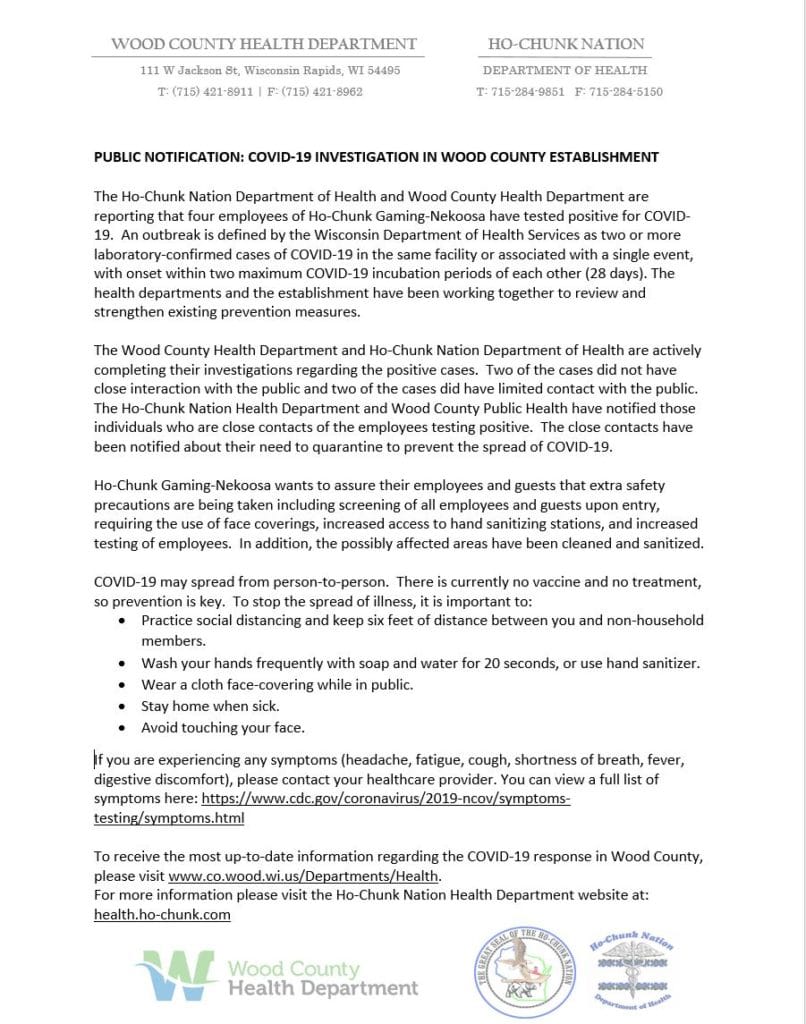The Ho-Chunk Legislature has acted in an unconstitutional manner, according to a ruling by the Ho-Chunk Nation Trial Court.
The Honorable Associate Trial Court Judge Mary Jo Hunter of the Ho-Chunk Trial Court issued the decision on Thursday, October 29, 2020.
The case was brought before the court by plaintiffs Ho-Chunk Nation President Marlon WhiteEagle and the HCN Executive Branch.
President WhiteEagle objected to the Legislature abusing its powers to reduce the Executive Branch budget by means of line-item budget reductions. WhiteEagle argued that the act crossed the line of the constitutional separation of powers, crossing the lines of branches of government. WhiteEagle objected that he was not allowed any input in decisions of how the money could be spent and what employees would be retained or be laid off.
Also, WhiteEagle challenged the Legislature approving a continuation of short-term budgets, which is not allowed by the Constitution.
According to Judge Hunter, a continuation of a temporary budget is allowed only in certain situations, such as when a particular department has not submitted its budget in time for approval by the Legislature. It cannot be used on a continual basis for the entire government, Judge Hunter determined.
“The Court determines that the manner in which the individually-named Legislators passed its continuing budget resolutions violated the Ho-Chunk Nation President’s constitutional powers under ART. VI,§ (2)(b)-(c) and (2)(1) of the Ho-Chunk Nation Constitution,” Judge Hunter wrote in her judgement.
The Ho-Chunk Legislature passed a resolution that would permit them to approve continuing short-term budgets. Judge Hunter deemed that unconstitutional.
“Therefore, the (Court) “hereby declares that the Appropriations and Budget Process Act 2 HCC § 4.5(g) is unconstitutional insofar as it permits successive continuing budget resolutions,” she wrote.
The Ho-Chunk Nation Constitution authorizes the Legislature to “authorize expenditures and appropriate funds to the various departments in an annual budget” and in accordance with the Ho-Chunk Nation Constitution, “the President of the Ho-Chunk Nation must be permitted input on in the budgetary process.”
President WhiteEagle is pleased with the court’s decision.
“We function best when we empower the full use of each branch of the Ho-Chunk Nation government,” he said. “Our courts are there to interpret our laws and Constitution, and they did that in this decision.”
WhiteEagle believes that the legislative body has never really been challenged before this.
“They’ve never been put in check or had their authority questioned like this,” he said. “We hope this paves the way for more credence on Executive Department input in decision making for the best interest of the Nation and less misinterpretation of authority on legislative side of the house.”
WhiteEagle hopes the separate branches of Ho-Chunk government can move forward at this point and be respectful of each branch’s autonomy, as in the separation of powers.
“It’s a win for us, so we are happy with the decision,” WhiteEagle said.
